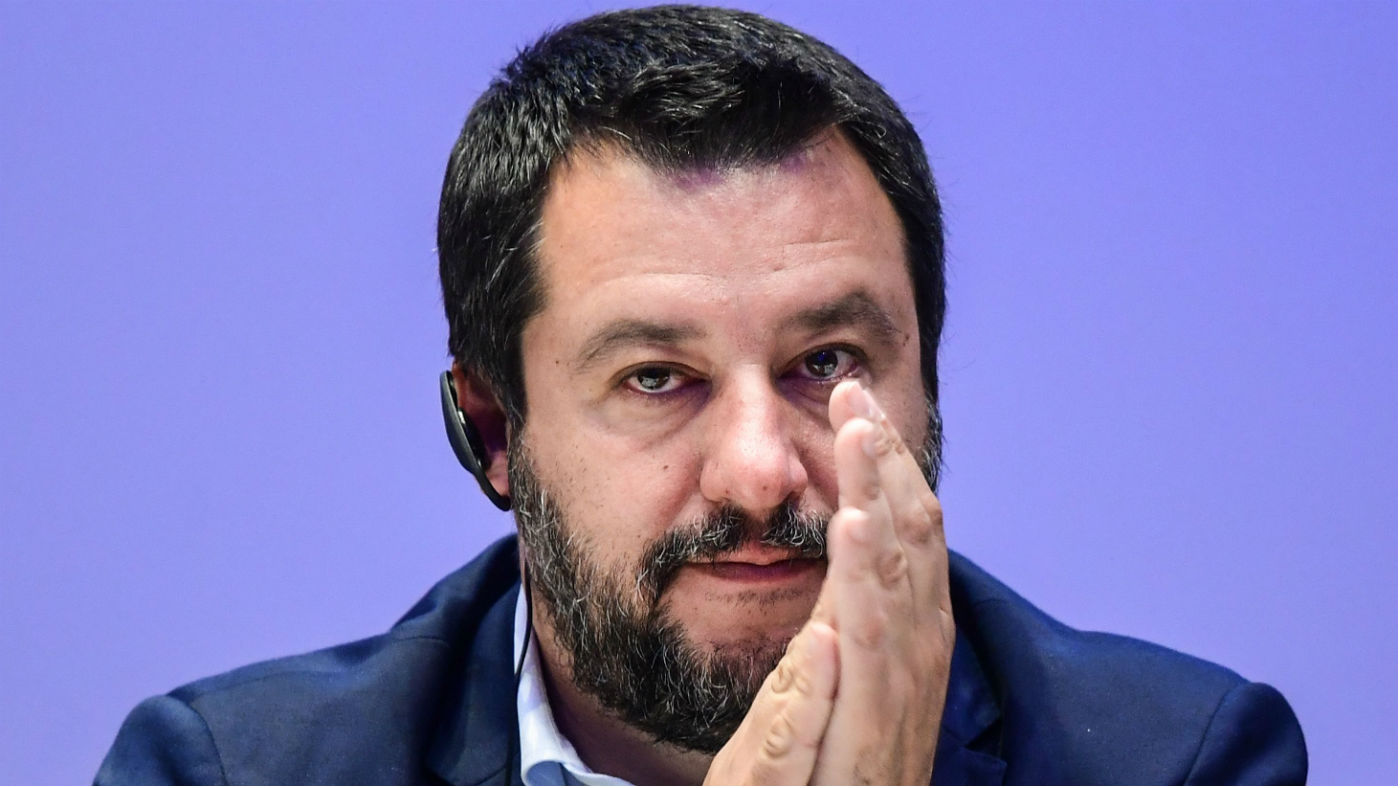How would Italy’s ‘parallel currency’ work?
Deputy prime minister hints at nuclear fiscal option in defiant riposte to EU ultimatum

A free daily email with the biggest news stories of the day – and the best features from TheWeek.com
You are now subscribed
Your newsletter sign-up was successful
The Italian government is set to face off with the EU after threatening of launching a “parallel currency” in a riposte to calls for it to rein in its public spending programme.
Facing €3.5bn in fines from the EU for failing to tighten its fiscal belt, the far-right League which is part of the ruling coalition has adopted a strategy which “is to offer EU leaders a choice: reform the EU treaties to enable fiscal expansion and allow the European Central Bank to act as lender-of-last-resort; or face the consequences”, writes Ambrose Evans-Pritchard in The Daily Telegraph.
Fresh from an emphatic European election victory in which his party swept up nearly 40% of the vote in Italy, League leader and deputy prime minister Matteo Salvini struck a defiant tone, saying “I don’t govern a country on its knees”.
The Week
Escape your echo chamber. Get the facts behind the news, plus analysis from multiple perspectives.

Sign up for The Week's Free Newsletters
From our morning news briefing to a weekly Good News Newsletter, get the best of The Week delivered directly to your inbox.
From our morning news briefing to a weekly Good News Newsletter, get the best of The Week delivered directly to your inbox.
His answer is to revive the threat of introducing so-called “mini-BOTs”, named after Italy’s short-term Treasury bills, which would act as a form of parallel currency in competition with the euro.
Reuters says the Treasury “would print billions of euros of non-interest-bearing, tradeable securities which could then be used by recipients to pay taxes and buy any services or goods provided by the state, including, for example, petrol at stations run by state-controlled oil company ENI”.
Claudio Borghi, Lega chairman of Italy’s house budget committee and long-time critic of the euro, said the plan for minibot treasury notes is written into the coalition’s solemn “contract” and will be activated to flank the tax reform package.
“It is a way to mobilise credit that is badly needed and put money into circulation,” he said.
A free daily email with the biggest news stories of the day – and the best features from TheWeek.com
“This scrip paper creates parallel liquidity - akin to what [former Greek finance minister] Yanis Varoufakis wanted to do in Greece - to be used to pay €50bn of arrears to state contractors and households”, says Evans-Pritchard.
“Once these short-term notes trade on the open market they would become a de facto currency, a new lira in waiting. Italy would have a split monetary system. The euro would unravel from within,” he writes.
Supporters of the plan say it will “finally resolve the intractable problem of the state’s outstanding bills, which has weighed on Italy’s economy for years. They say that by providing money for consumers to spend and companies to invest, it can give a major boost to the country’s sluggish economy”, Reuters says.
However, “the impact on public finances is disputed” says the news agency. “Critics say it will raise Italy’s public debt, already the highest in the euro zone after Greece’s.”
“Italy might be able to use mini-BOTs (or let’s be honest and call them the new lira) to finance deficit spending without breaking eurozone rules” John Mauldin said in Forbes last summer when the idea of a parallel currency was first touted.
“This could ultimately debase the euro and blow apart the eurozone. Germany would have to leave. From there, you can draw your own map,” he added.
-
 5 thoroughly redacted cartoons about Pam Bondi protecting predators
5 thoroughly redacted cartoons about Pam Bondi protecting predatorsCartoons Artists take on the real victim, types of protection, and more
-
 Palestine Action and the trouble with defining terrorism
Palestine Action and the trouble with defining terrorismIn the Spotlight The issues with proscribing the group ‘became apparent as soon as the police began putting it into practice’
-
 Why is the Trump administration talking about ‘Western civilization’?
Why is the Trump administration talking about ‘Western civilization’?Talking Points Rubio says Europe, US bonded by religion and ancestry
-
 Epstein files topple law CEO, roil UK government
Epstein files topple law CEO, roil UK governmentSpeed Read Peter Mandelson, Britain’s former ambassador to the US, is caught up in the scandal
-
 Iran and US prepare to meet after skirmishes
Iran and US prepare to meet after skirmishesSpeed Read The incident comes amid heightened tensions in the Middle East
-
 Israel retrieves final hostage’s body from Gaza
Israel retrieves final hostage’s body from GazaSpeed Read The 24-year-old police officer was killed during the initial Hamas attack
-
 China’s Xi targets top general in growing purge
China’s Xi targets top general in growing purgeSpeed Read Zhang Youxia is being investigated over ‘grave violations’ of the law
-
 Panama and Canada are negotiating over a crucial copper mine
Panama and Canada are negotiating over a crucial copper mineIn the Spotlight Panama is set to make a final decision on the mine this summer
-
 Why Greenland’s natural resources are nearly impossible to mine
Why Greenland’s natural resources are nearly impossible to mineThe Explainer The country’s natural landscape makes the task extremely difficult
-
 Iran cuts internet as protests escalate
Iran cuts internet as protests escalateSpeed Reada Government buildings across the country have been set on fire
-
 US nabs ‘shadow’ tanker claimed by Russia
US nabs ‘shadow’ tanker claimed by RussiaSpeed Read The ship was one of two vessels seized by the US military